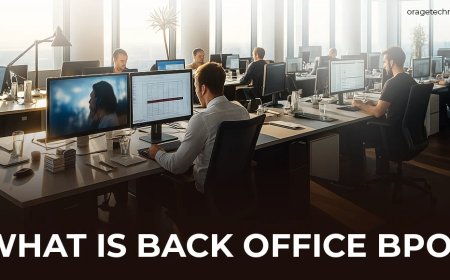How ISO Certification Can Strengthen Your Small Business Operations

Youve probably heard the term ISO certification tossed around in business circles, maybe during a pitch for a big contract or while chatting with a supplier. It sounds important, official even, but what does it actually mean for a small or medium-sized enterprise (SME) like yours? Honestly, its not just a fancy badge to stick on your websiteits a practical way to streamline your processes, build trust with customers, and open doors to opportunities you didnt even know were there. Lets unpack this, shall we?
ISO certification is like a universal stamp of approval. It tells the world your business meets specific international standards for how things should be donewhether its making products, managing customer complaints, or keeping your team safe. For SMEs, its a way to show youre serious about quality, even if youre not a massive corporation with endless resources. But before we get too carried away, lets break it down the nuts and bolts of what ISO certification is, why it matters, and how it can use it to give your business a leg up.
Whats ISO All About?
The International Organization for Standardisationyep, thats what ISO stands forcreates global standards to ensure consistency across industries. These standards cover everything from the strength of steel to the security of your customers credit card details. Think of ISO as the behind-the-scenes playbook that helps businesses operate smoothly, no matter where they are in the world.
An ISO certification is proof your business follows one of these standards. Its not a one-size-fits-all deal, though. There are thousands of ISO standards, each focusing on a different area. For SMEs, a few stand out:
ISO 9001: This ones the rockstar of ISO standards, all about quality management. It helps you deliver products or services that consistently meet customer expectations.
ISO 14001: If youre looking to go green, this standard focuses on environmental management, helping you reduce waste and environmental impact.
ISO 45001: This is about keeping your team safe with solid occupational health and safety practices.
Each standard is like a recipe. Follow it, and youre more likely to cook up something customers love. But heres the thinggetting certified isnt just about checking boxes. Its about rethinking how you do things to be better, smarter, and more reliable.
Why Should SMEs Care?
You might be thinking, Sounds great, but my business is small. Do I really need this? Fair question. Running an SME is tough enoughjuggling cash flow, chasing clients, keeping staff happy. Why add another thing to the to-do list? Heres why: ISO certification can be a secret weapon for small businesses looking to punch above their weight.
Credibility That Opens Doors
Imagine youre bidding for a contract with a big playera government agency, a multinational, or even a local council. These folks often want suppliers they can trust, and what is ISO certification is like a glowing reference letter. It says, Hey, this business knows what its doing. Without it, you might not even get a seat at the table.
I remember chatting with a friend who runs a small manufacturing outfit. They were losing out on contracts because bigger competitors had ISO 9001 certification. Once they got certified, it was like flipping a switchsuddenly, they were in the running for deals theyd never dreamed of touching. Thats the power of credibility.
Streamlined Processes Save Time and Money
ISO standards force you to take a hard look at how your business runs. Ever notice how much time gets wasted on miscommunication or fixing mistakes? ISO 9001, for example, helps you map out clear processes so everyone knows whats expected. Fewer errors mean less rework, happier customers, and more time to focus on growing your business.
Its like tidying up a messy kitchen before cooking a big meal. Sure, it takes effort upfront, but once everythings in place, youre whipping up dishes like a pro. Plus, efficient processes can cut costs, which is music to any SME owners ears.
Happy Customers, Loyal Customers
Customers dont always see your ISO certificate hanging on the wall, but they feel the difference. Consistent quality, reliable delivery, and quick responses to complaints? Thats what ISO standards help you deliver. And you know what? Happy customers stick around and tell their friends.
Take a local bakery I knowthey got ISO 9001 to supply a regional supermarket chain. The certification process helped them nail their production schedule, so every loaf was fresh and on time. Customers noticed, sales climbed, and now theyre expanding to new stores. Its not magic; its just good systems at work.
How Does the Certification Process Work?
Alright, so youre intrigued. But what does it take to get certified? Dont worryits not as daunting as it sounds, though it does require some elbow grease. Heres the basic rundown:
Pick the Right Standard: Choose the ISO standard that fits your business goals. ISO 9001 is a great starting point for most SMEs.
Get Your House in Order: Review your current processes and tweak them to meet the standards requirements. This might mean documenting how you handle customer feedback or setting up safety protocols.
Bring in the Experts: Hire an accredited certification body to audit your business. Theyll check if youre walking the talk.
Pass the Audit: If you meet the standard, youll get your certificate. If not, theyll point out what needs fixing, and you can try again.
Keep It Up: Certification isnt a one-and-done deal. Youll need regular audits to maintain it, usually every year or so.
Sounds straightforward, right? Well, it can feel overwhelming at first, especially if youre already stretched thin. But plenty of SMEs do it, and theres help out thereconsultants, templates, even government grants in some regions to cover costs.
Whats the Catch?
Lets be realISO certification isnt a walk in the park. It costs money, takes time, and requires commitment. For a small business, that can sting. Initial costs might include consulting fees, training, and the audit itself, which can run anywhere from a few thousand to tens of thousands of dollars, depending on your business size and complexity. Then theres the ongoing effort to maintain it.
But heres a counterpoint: think of it as an investment, not an expense. The returnbigger contracts, happier customers, smoother operationscan far outweigh the upfront hustle. Plus, you dont have to go all-in right away. Start with one standard, like ISO 9001, and build from there.
Another worry? Some SMEs fear itll bog them down in paperwork. I get itnobody loves bureaucracy. But modern ISO standards are less about red tape and more about practical systems. With digital tools like Trello or Monday.com, you can keep things lean and mean.
How to Get Started Without Losing Your Mind
Feeling inspired but not sure where to begin? Take a deep breath and start small. Here are some tips to ease into the ISO journey:
Do Your Homework: Read up on the standard youre eyeing. The ISO website (iso.org) has plain-language summaries, and YouTubes full of explainer videos.
Talk to Peers: Reach out to other SMEs in your industry whove gone through certification. What worked for them? What pitfalls should you avoid?
Find a Consultant: A good consultant can guide you through the process, saving you time and headaches. Just make sure theyre reputablecheck reviews or ask for references.
Rally Your Team: Certification isnt a solo mission. Get your staff on board early, so theyre invested in making it work.
And heres a pro tip: dont aim for perfection. ISO isnt about being flawless; its about showing youre committed to getting better. That mindset shift can make the process feel less like a chore and more like a growth opportunity.
Why Nows the Time to Act
You know how trends come and go in business? Well, ISO certification isnt a fadits been around for decades and keeps gaining steam. With supply chains getting more global and customers demanding higher standards, certification is becoming a must-have, not a nice-to-have. Even local markets are feeling the shiftthink of all the certified organic or fair trade labels you see. ISOs the same vibe, just for business processes.
Plus, theres a seasonal angle. As we head into 2025, many SMEs are gearing up for new contracts or expansions. Getting certified now could put you ahead of the pack when those opportunities roll in. Why wait and risk being left in the dust?
Wrapping It Up: Your Next Step
So, what is ISO certification? Its not just a piece of paper or a shiny logo. Its a way to prove your small business can play with the big dogs, deliver quality consistently, and keep improving. For SMEs, its a chance to stand out, save money, and build a reputation that lasts.
If youre curious, start by exploring ISO 9001 or another standard that fits your business. Chat with your team, check out resources online, or reach out to a consultant. The road might feel bumpy at first, but the view from the top? Totally worth it. Whats holding you back? Isnt it time your business got the recognition it deserves?






































